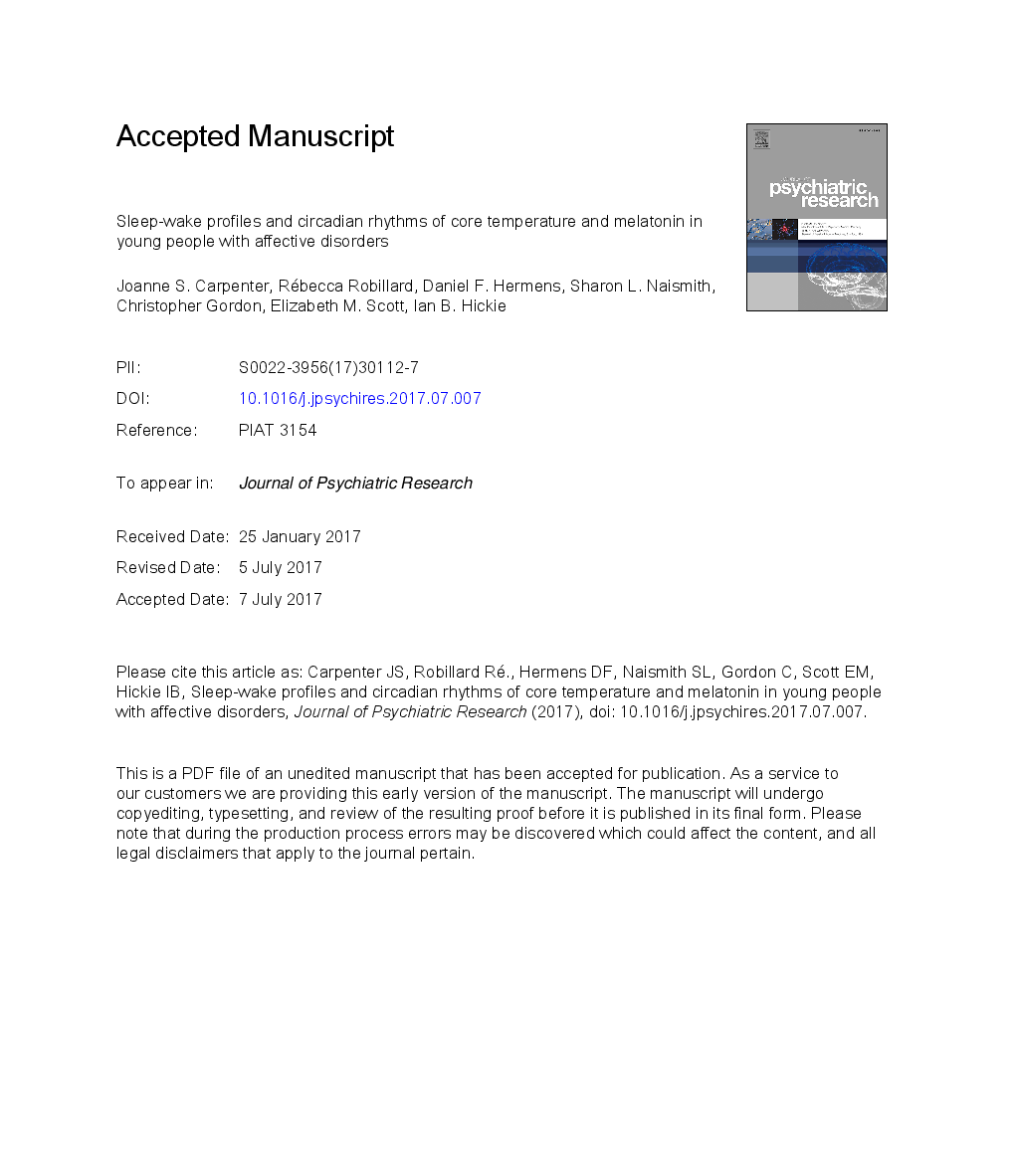ترجمه فارسی عنوان مقاله
علائم خواب و بیداری و ریتم های روزانه از درجه حرارت هسته و ملاتونین در جوانان با اختلالات عاطفی
عنوان انگلیسی
Sleep-wake profiles and circadian rhythms of core temperature and melatonin in young people with affective disorders
| کد مقاله | سال انتشار | تعداد صفحات مقاله انگلیسی |
|---|---|---|
| 123857 | 2017 | 27 صفحه PDF |
منبع

Publisher : Elsevier - Science Direct (الزویر - ساینس دایرکت)
Journal : Journal of Psychiatric Research, Volume 94, November 2017, Pages 131-138
ترجمه کلمات کلیدی
خواب دوران کودکی، ملاتونین، دمای هسته، اختلالات عاطفی،
کلمات کلیدی انگلیسی
Sleep; Circadian; Melatonin; Core temperature; Affective disorders;

